By Owanate Max-Harry, Chinonso Ihekire, Fatiat Saliu, Michael Chiedoziem Chukwudera, and Emmanuel Daraloye
2021, a rather eventful year in African music, saw artistes stretch their range, stepping outside of sonic stereotypes, experimenting through a mixed bag of fusion elements and flat-out multicultural mash-ups. Whether it is drill-infused Caméleon as delivered by ElGrande Toto, Amapiano-layered Lagos to Jozi by Niniola, or Mother Nature by the famed Angelique Kidjo, African acts are making a bold statement. Cultural barriers in music are being shattered, and if there is any marking as to a future where unity is fostered as a people, a clear catalyst will be our musicality.
The Afrocritik music board has set out the top 25 African albums of 2021, reflecting the summit of the African experience through sound.
In order of importance from the 25th to 1st place, here is our list.
25
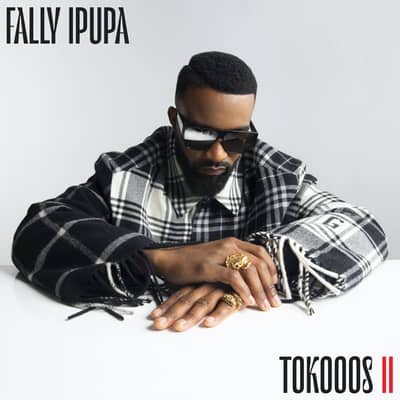 Afrocritik
Afrocritik
Release date: December 18th
Fally Ipupa has been one of Africa’s biggest acts for over a decade. And his latest album Tokooos II which is his second urban album is definitely one of the most notable albums of the year.
The crisp production and singing for which Fally Ipupa’s notoriety is sustained is set in full display on this LP. The album has 16 tracks in its plain version and 22 tracks in the bonus version (where six other tracks of his were added).
The album is entirely in French, and it covers issues about money, relationships, partying, places, etc. Fally Ipupa’s singing has over the years evolved from the Kofi Olomide’s school of music from which he emerged. A thoroughly enjoyable ensemble, Fally Ipupa gives a reminder to why he is one of Fracophone Africa’s most celebrated musical acts.
24

Release date: October 22nd
Sudanese-originating Dua Saleh’s Crossover combines elements of American, Spanish and Arab styles.
The album begins with “Focal” which embodies its title, both in the way it is composed and sung. The album also has guest appearances from Amaarae, Haleek Maul, Chester Watson, and Duckwrth. Each of the songs where Dua Saleh teams up with these singers is like a duet, which partly reflects the collaborative genius of the artiste.
Their songs are groovy and danceable, sensual and laced with sexual imageries while not abandoning the exploration of the culture of glamour and luxury.
The song writing in this project is impeccable, owed, possibly, to their beginnings which were heavy on poetry.
Crossover is a perfect blend of technique, flair and elegance, establishing Dua Saleh as a genre defying maestro.
23

Release date: October 8th
With UK-Ghanaian producer, Juls, you always know to expect impressive beats. It is how he has managed to stay on top and why he is one of the most sought-after producers on the continent and outside it. Over the years, he has consistently produced hit songs for some of the best artistes in Africa.
On his debut project, Sounds Of My World, Juls wants to showcase exactly that — sounds from his home continent, Africa. He enlists previous collaborators, Wizkid, Oxlade, Tay Iwar, and some new ones, including Afro-house queen, Niniola.
As a pace-setting producer for many African sub-genres, he experiments with other new ones, like Amapiano which has gradually gained credence in the past year. With these artistes and creatives, he creates music that immerses you in its process, and provides a euphoric experience.
In special records like Love Me, Juls’ expert style is highlighted, fused with Niniola’s audacious voice, where she unapologetically demands affection from a man she fancies. Both creatives are flexing their genius (Nini’s vocal ability and Juls’ immaculate production) in what we will call an ethereal collaboration.
In most tracks, the artistes trill about various phases of love, but Wish You with Bas and Mannywellz draws from us a little more longing and wishing.
The project closed on a high note with Nigeria’s Tay Iwar and Jamaica’s Projexx on “Chance,” and the duo croon dreamily about giving love a second chance.
22
anaiis (this is no longer a dream)

Release date: September 10th
In this is no longer a dream, French-Senegalese artiste, anaiis, is on a journey to rediscovery and self-healing. She documents her experiences and the eventual conclusion of the process. For every negative emotion, she combats it with positivity, and encourages her listeners to take on the same journey even if proven difficult.
The journey to healing is definitely complicated, and despite seemingly fearsome obstacles, there is relief at the end of the tunnel. She takes us on these paths from the first track, “undulations,” through to “chuu” featuring Topaz Jones, and “cry in your sleep” with Chronixx, eventually reaching a crescendo in “transcending.”
anaiis’ sultry renditions are remarkably reflective of a mastery at soul, with vivid imagery capturing her chosen themes.
21
Damaso Matias (Viver Amar & Dançar)

Release date: December 11th
The striking quality about this project is its ability to please the listener. It is danceable and enjoyable, even as it covers topics ranging from love to patriotism.
An EP of six songs, the project spans 23 minutes and was released at the close of 2020. It features a love song like “Luz,” an introspective song like “Minha Pessoa,” an ode to the motherland in “Amar Angola,” and not forgetting the love duet “Vem Ser Feliz” where Matias features Aina Quach who brings her lovely vocals to the tune.
Matias, one of Angola’s most popular singers, is known for romantic ballads, and also for Kizomba, an indigenous music genre which originated from Angola in 1984. He enjoys popularity in Angola as well as Portugal where his projects like “Por Amor” and “Augusta” gained noteworthy traction. With this EP, Matias is certainly not loosening his grip on Lusophone Africa.
20

Release date: November 18th
Kizz Daniel’s self-assuredness and confidence is second to none. After releasing his third studio album, King of Love, in the middle of the pandemic, he is back with Barnabas — Greek word for “son of encouragement” — and it is his most cohesive project since New Era. For Kizz, making back-to-back hits is as easy as making breakfast. Consistently delivering melodious hooks since his introduction to the scene, in his 4th studio album, Barnabas, we hear growth and experience in his lyrical and sonic renditions.
He sifts through the concepts of unrequited love, addiction, young love, commitment, and social issues like body dysmorphia and colourism. With “Oluwatobiloba,” he easily commands attention, and you have no choice but to listen. Nigerian chart topper “Lie” is reflective of Kizz’ hit-making prowess which is pervasive in Barnabas — a phenomenal body of work.
19

Release date: December 4th, 2020
Released initially in December 2020, and spiralling into 2021 via a re-issuing titled Les Vestiges du Fléau, this French hip hop album boasts of hit singles like “Yolo,” inspired by Gims’ Congolese origins; “Immortel,” and “Origami.’
Gims shows a great detail of deliberateness in his artistry even in his visuals. ”Immortel” is one where he stamps his foot on activism as he alludes to the death of 16-year-old Lige Daniels, killed by hanging by the Ku Klux Klan in 1920; Camille Desmoulins‘ guillotining in 1794, George Floyd‘s murder, 14-year-old George Stinney jr‘s 1944 murder, amongst others.
The rapper’s production on the album shows exquisite range as he samples ”Maché Bécif” in ”Origami”; ”Sicko Mode,” and ”Plain Jane” in ”jetez pas l’oeil,” as well as Garou, Patrick Fiori and Daniel Lavoie’s ”Belle” in same-titled track, a cover and perfect iteration to the 1997 smash hit.
Gims’ grip on wide ranging cultural epithets is strengthened as he establishes himself as a maestro of symbolism through the entirety of this tour de force.
18

Release date: February 5th
It has been long established that the Kutis are tied into the very roots and beginnings of Nigeria. From Funmilayo Ransome-Kuti to her son, Fela Anikulapo Kuti and his heirs — Femi & Seun Kuti, and now, Femi’s eldest son — Made Kuti, the Kutis have become the emblem of national and political activism. For the musically-inclined Kutis, their father/grandfather set a precedent with the creation of Afrobeat.
Impressively, these heirs have managed to forge independent careers, creating sounds unique to each of them. This is why Made Kuti in particular has the spotlight shone in his direction. A multi-instwrumentalist and composer in his own right, Made’s ideals correlate more with present issues plaguing the people. He acknowledges that his grandfather, a radical activist and superior maestro, played his part in educating the public and questioning motives of the military governments in the past, yet he introduces a refreshing stance, in his performances, lyrics and instrumentals.
In Legacy +, Made’s father, Femi continues in his usual fashion of commenting on the current political climate. Made, as a late millennial, offers a fresh perspective as he embarks on a rerun of notes screaming “free your mind and set your soul free” in “Free Your Mind,” a track in which he flexes his instrumentalist side showing extraordinary range.
In “Blood,” he decries violence as he chants “why must we fight to be free?” Before Made’s segment on this project, Femi lays the not unfamiliar social activist background in tunes like “Pà Pá Pà” where he warns against citizenry docility in mounting pressure on governments.
Femi is unreined as ever even in his track captioning. Records like “You can’t fight corruption with corruption” and “Na bigmanism spoil government” showcase that the Kutis are not letting off in their powerful and clear stance on social issues. This project succeeds in entrenching a far-reaching legacy while cementing the individualism of each Kuti.
17
Cassper Nyovest (Sweet and Short 2.0)
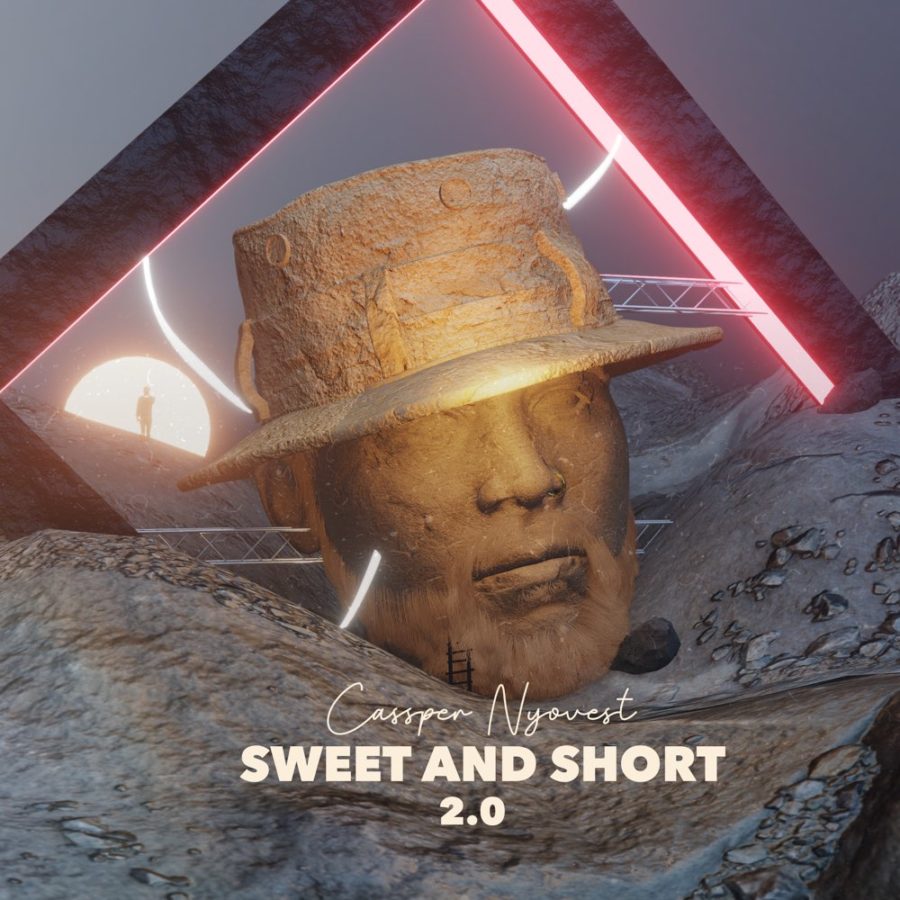
Release date: June 30th
Three years after exploring the Kwaito sound on his Sweet and Short EP, South African rapper and singer, Cassper Nyovest makes a return with a new experimental project this year which he tagged Short and Sweet 2.0.
With Amapiano having one of its biggest years so far, the South African music legend joined the trail with the release of a 10-track collaborative project.
This album which runs for more than one hour features the likes of LuuDadeejay, Kammu Dee, Lady Du, Ma Lemon, Semi Tee, Boohle, DJ Sumbody, Reece Madlisa, and others.
The LP opens with “Khotso,” the swirly record, leading to track 4, the meditative “Piano Prayer,” and the sex-tinged “Fxck Me Harder.” Cassper Nyovest has undoubtedly conquered South Africa’s rap industry and with this project, he looks set to further that dominance using Amapiano.
16
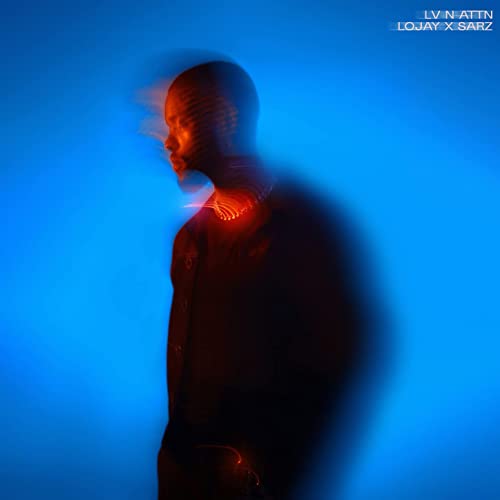
Release date: June 4th
The first song released out of LV N ATTN was “Tonongo.” Immediately after its release, it caught a lot of people’s attention. Why wouldn’t it? Here was a song with ethereal vocals, sultry song-writing, and immaculate production, packed with double entendres and capable of making you feel things you had no idea you could feel.
Project collaborations are not new to Sarz. He did it with Afrosoul artiste, WurlD, on I Love Girls With Trobul, and it was a success. On LV N ATTN (Love and Attention), newcomer, Lojay, teams up with Sarz, and for 14 minutes, all we could hear was the influence of the staggering chemistry between these two creatives. Here, we have “Monalisa,” a song of the year contender in Nigeria, and according to public polls, it has a very good chance of winning.
15
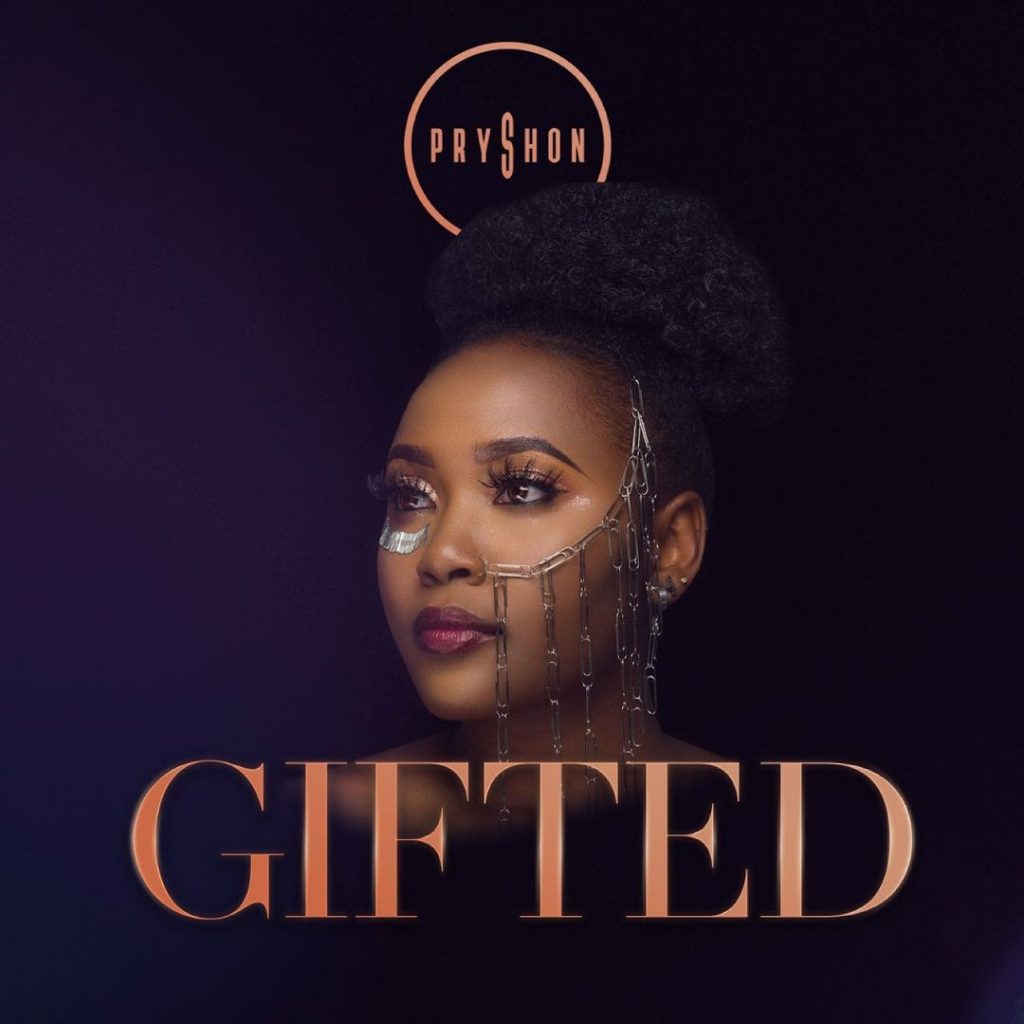
Release date: June 30th
The 17-track soundpiece starts with a soul-stirring melody dubbed, “Winner.” And this is the spirit that embodies the entire album from the Kenyan chanteuse, Priscilla Gathoni, professionally known as Pryshon.
Titled Gifted, the album stood out for its masterful blend of melodies. It was an Afro-fusion soirée where Afro-pop, RnB, slow-burn dancehall, the Kenyan Gengetone melody, among others are the ecstatic attendees.
The love narratives and inspirational lyricism revs up the social relevance of this project, and sets it up as a standout record from other similar records in the region. It is fair to say that the Nigerian Pidgin English blend in this record is just another icing on the cake.
14

Release date: November 12th
The “Ibadi” and “Maradonna” crooner is at it again, this time flexing her exotic range with this heavy-laden Amapiano mash-up. Lagos to Jozi is a 4-track power statement on Afro-fusion.
The House/Soul elements are boldly interwoven with excellent production, capped off with Niniola’s signature strong vocal presence.
In an era where various non-South African acts are attempting the Amapiano sub-genre, Niniola succeeds in establishing the benchmark for this fusion. She also does not lose sight of her sexual expressiveness, as “I did it (Bum Bum)” featuring Lady Du is laden with these overtones. Up-tempo record, “Too Sweet (Odun)” stands out, as the singer assembles with Oskido and GuiltyBeatz to deliver a potential clubhouse hit.
This EP is indicative of Niniola’s sturdy ascent to exquisite African Prima Donna acclaim. It definitely raises the bar on expectations for artistes seeking to explore cultural fluidity through sonic expression.
13
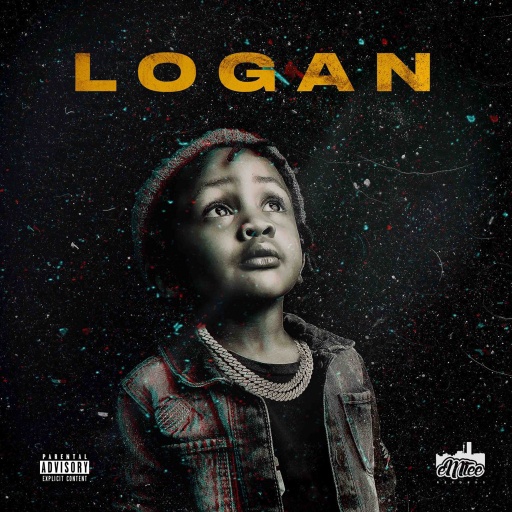
Release date: April 9th
Rapper and singer, Emtee, made his debut with the trap special, “Roll up.” By the time the remix which featured Grammy-winning artist, Wizkid and rapper, AKA, was released, the song was already a chart topper, leading to viral conversations about Emtee. The successes of these songs became the pedestal on which Emtee’s debut album, Avery, was hinged.
With a penchant for naming albums after his beloved ones, Emtee releases a 16-track album named after his second son, Logan.
The collaboration on this project is sparse but the topical issues range from love to domestic violence, mental health, to pressure. These themes run through the entirety of this body of work, from the opening question provoking “Revolution,” to the heart-rending tribute track “Logan,” the emotional rife “Long Way,” down to the last track, “Come Closer.” On Logan, it is safe to say that a memoir-like project with a song for almost everyone was delivered.
12

Release date: June 24th
The Kenyan sweetheart, Nikita Kering, has been an Afro-RnB charmer for years. Her latest work dubbed, A Side of Me is a slow-burn love rhythm cooked with soothing RnB/pop-fusion melodies.
What charms this record is not only the fact that Kering is still one of the youngest singers in the game, but also that she is a lyrical juggernaut who weaves her stories with the yarn of simplicity.
The tracks on this record are very relatable – although sung in English. The crown jewel in this body of work is its replay value; a mood-lifter and definitely a no-skip soundpiece.
11
Nviiri The Storyteller (Kitenge)
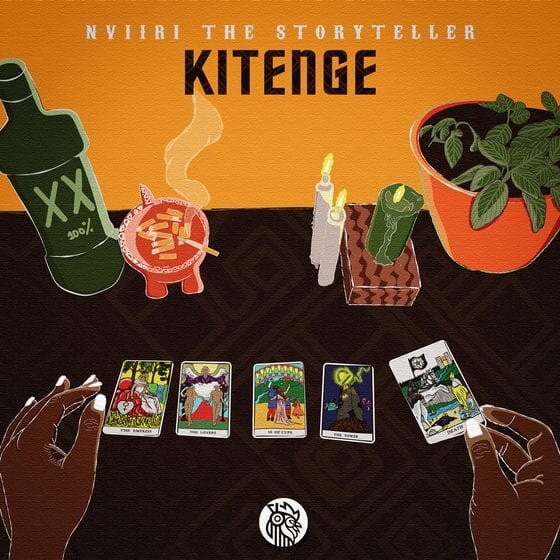
Release date: March 5th
With heavy replay value, Nviiri The Storyteller stands out in his latest offering dubbed, Kitenge. It is simply beautiful music woven with ballads, Afro RnB, and a tinge of Pop. Content-wise, it is a failed love story that might push you to tears, if you can connect with the painful lyricism or even the sound itself. Apart from its stellar track listing, the project radiates with several gems from solid production, and strong emotive quality, among others.
10

Release date: February 5th
In 2004, during a question and answer session at Red Bull Music Academy, Black Coffee was asked where he sees himself in the next five years. The Durban-born disc jockey said he would be the most important producer in South Africa. Close to two decades later, he has achieved just that, sharing the stage with Drake, Usher, performing at huge music festivals the world over, with his legacy transcending South Africa. The 45-year-old superstar returned with an album a few months ago, his first major project in about three years.
Although Amapiano remains the current rave in South Africa, Black Coffee sticks to his forte of Jazz and Dance, collaborating with the likes of Sabrina Claudio, RY X, Cassie, Usher, Jozzy, Pharrell Williams, Celeste, Msaki, David Guetta, Delilah Montagu, Diplo, Una Rams, Tellaman, and Elderbrook.
The album opens with an intro by singer, Jinadu, followed by a killer love track which has the input of Maxine Ashley and Sun-El Musician titled “You Need Me.” When the album swirls down to the Jozzy and Pharrell Williams-assisted “10 Missed Calls,” it becomes glaring that Black Coffee still retains his command in his sub-genre. It holds little wonder that the album was nominated for Best Dance/Electronic Album at the 64th Annual Grammy Awards.
9
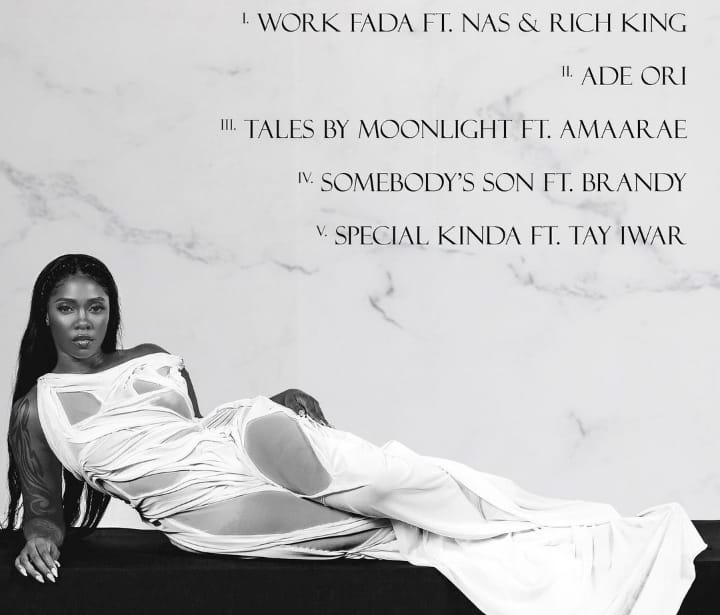
Release date: August 20th
When you have existed and excelled in the music scene for ten years like Tiwa Savage has, you soon find new ways to reinvent yourself. Tiwa’s third studio album, Celia, released in 2020 was this attempt at this. It is 2021, and the Queen is here to make a statement — “make no mistake, I am that b,” and we hear her loud and clear on her Water & Garri EP.
With reinvention comes attempts at experimentation, and she does that here, connecting tales (“Tales By Moonlight” ft. Amaarae) from her African roots with concepts she has picked up throughout her musical journey. In “Work Fada,” Tiwa erases any doubts about the mastery of her craft with this six minute-long assortment of neo-soul, hip hop and reggae. Employing Rich King on this one, the virtues of hard work are extolled as she serenades, albeit spiritually, with such meticulousness that the rap icon, Nas simply glosses over to emphasise the song’s theme.
Savage burnishes this EP with the much talked about rendition of “Somebody’s Son” with R&B favorite, Brandy. On this song, both artistes fit in almost perfectly, with Brandy reminding the audience of her 90’s R&B undaunted run.
Water and Garri is a clear statement of Tiwa Savage’s range, and a definitive assertion of her versatility. A worthy listen.
8
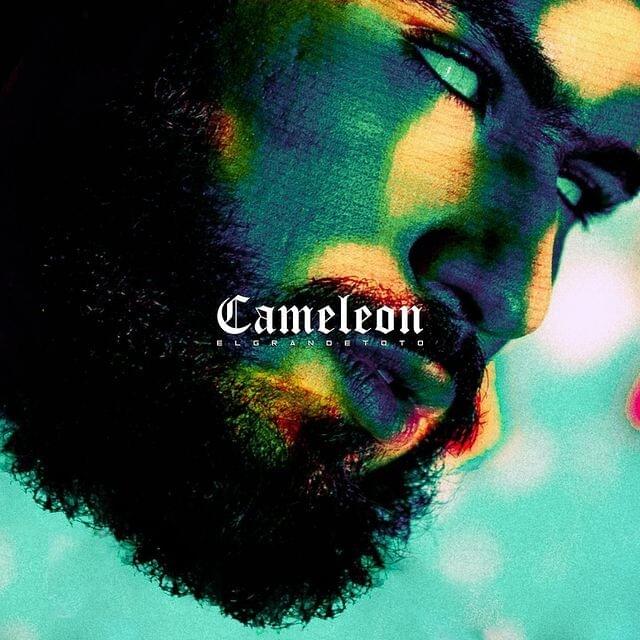
Release date: March 15th
A drill-infused hip hop album, with songs sporadically executed with energetic rhythm, Caméleon is a hybrid of Arabic rock and trap. “Mikasa” showcases the rapper’s dexterity with drill sounds while maintaining his Moroccan core.
This LP is a marker of the growing hip hop culture in Maghreb Africa. A fairly long piece of art with 17 songs spanning a period of over 57 minutes, its uniqueness lies in the employ of native Moroccan sounds in delivering high-powered hip hop elements.
ElGrande Toto proves on this project that his designation as Spotify’s most streamed artiste in the MENA region is no ruse.
7
Angelique Kidjo (Mother Nature)
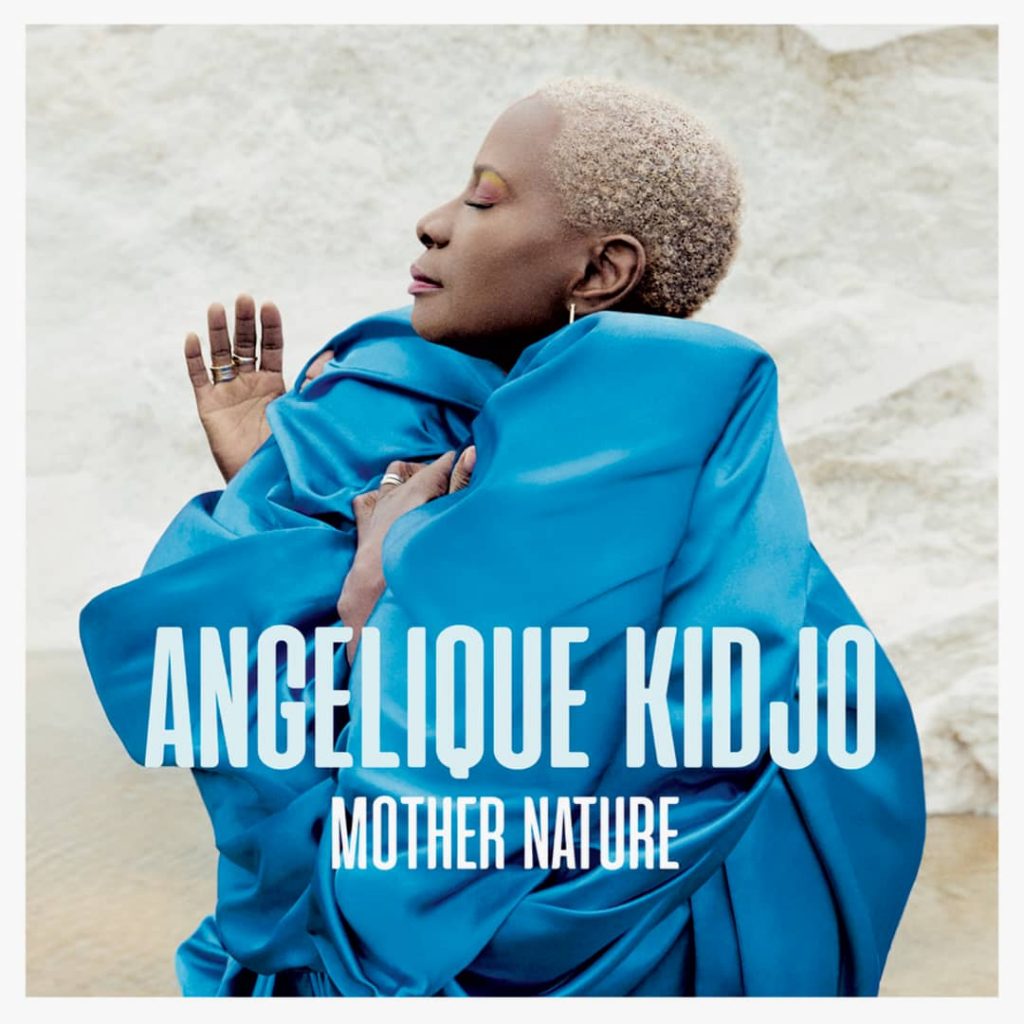
Release date: June 25th
Beninese vocal powerhouse, Angelique Kidjo, is back in 2021 with a new project, Mother Nature. Here, she does not let up with the social activism she is known for. She preaches love and highlights the importance of fostering peace in relationships — whether familial, communal, or tribal. In “Mother Nature,” also one of the tracks in the project, she sings, “Mother Nature has a way of warning us,” and she encourages that we embrace each other without racial or tribal superiority, before it’s too late.
Like Celia which was nominated for and won a Grammy in 2020, Mother Nature was nominated for another Grammy, and it is indeed deserving of it. On the project, she enlists other African artistes like Nigeria’s Burna Boy, Mr Eazi, and Yemi Alade.
In “Dignity” with Alade, they both sing about the events surrounding the #EndSARS protests, and the importance of the government conceding to the citizens’ needs and wants before an uprising occurs. “Africa, One Of a Kind“ juxtaposes the old and the new with Mali’s legendary Salif Keita who has been active in the music scene since the 70s, and Nigeria’s Mr Eazi who still largely experiments with his fairly new genre, Banku. This melangè succeeds in establishing the message of a continent staying together in good and tough times.
In “Omon Oba,” Kidjo sings mostly in Yoruba, and the audience gets to luxuriate in her exploring the roots and culture of the tribe.
“Mycelium” spices things up a little bit as it brings an entirely different tonal range to the project. Here, Kidjo delivers crisp vocals alongside collaborator, M, where they decry the absence of nature’s properties in a disintegrating world. They use the French language here.
As a closer, in “Flying High,” Kidjo hammered on the importance of keeping our head up high despite obstacles we fight face.
Mother Nature succeeds in bridging the gap between generations of African music and creating a pan African project, while not losing sight of the sonic variegation of the continent.
6
Electric Jalaba (El Hal/The Feeling)

Release date: March 19th
This is the third album from the musical group, Electric Jalaba, and their first release in half a decade. In El Hal/ The Feeling, Electric Jalaba showed that there is more to what they have formerly expressed. Some of the 9 tracks in the project paid homage to the origins of Gnawa music, which are vestiges of West African dialects like Fulani and Hausa from Nigeria, the Sahel region and Bambara from Mali — all evidences of the age-long historical movement between Morocco and Sahelian West Africans. Hence, this is music that is historical as well as is melodious.
El Hal houses accoutrements of various eclectic sounds including Moroccan Funk. This means that the music combines rhythm, soul, blues of ancient Moroccan music, and even borrows a bit of the element of Jazz. Gnawa music, indeed presented through Electric Jaba’s lens, is enchanting and endearing at the same time.
5

Release date: May 21st
The Tchintabaraden, Niger-born star famed for contemporary adaptations of his native Tuareg music, reinforced his stance on revolution and activism through his sixth album, Afrique Victime.
Glazed with psychedelic Rock elements, “Chismiten,” the album opener, transports its listener to a desert blues rendition of a Van Halen type guitar medley. “Taliat,” delivered with rhythmic mastery, conveys themes of heartbreak and disappointment, while “Bismilahi Atagah” is a divine plea for mercy from love-related agony.
The track “Afrique Victime” embodies Moctar’s cry for African emancipation as he sings “Africa victim of so many crimes, If we kept silent they decimate us.” This comes against the backdrop of Moctar’s unique experiences being Nigerian.
In this watershed LP, Moctar certainly brings a refreshing air to West African activist discourse through his unique sound, and gives the world an invigorating treatise of rock and roll-influenced desert blues.
4
1da Banton (Original Vibe Machine)

Release date: July 23rd
The Port Harcourt, Nigeria-born Godson Epelle who goes by the moniker 1da Banton was deliberately assertive with his first LP, Original Vibe Machine.
Propelled by the smash hit ‘No Wahala,’ the 15-track album starts off with the Jamaican patois and Nigerian pidgin English-ridden “Sekkle Down” where the artiste boldly makes an identity proclamation “bad man from Port Harcourt.”
The project does not lack in its features as “No Sleeping” allows Zlatan Ibile the free range on his notable adlibs. The popular Nigerian street motif on “smartness” as a means to avoiding being broke is the prevalent idea on this track. On “911,” accompanied by Seyi Shay’s lithe vocals, they deliver a swoon-worthy track about the tricky emotions that come with falling in love.
Banton enlists longtime mentor, Duncan Mighty, on “Flenjo,” and we get to experience the rarity of the mixture of sounds from two distinct generations.
A remix of “Way Up” from his self-titled EP from 2017 with Ghanaian musician, Stonebwoy, aptly encapsulates his musical journey and his promise to never stop striving to be at his peak artistically, a promise that has manifested with the gradual success of “No Wahala” on the album.
On Original Vibe Machine, 1da Banton weaves seamlessly through, and croons about the different stages of love. As the project flows on, he goes on with his usual preachings of enjoyment and a YOLO (You Only Live Once) lifestyle.
3

Release date: August 11th
Rwandan singer, Mike Kahiyura, is one heaven of a singer. Kahiyura’s sophomore project — an EP dubbed Zuba, was a bold expansion of his stellar discography.
What helps Kayihura on this soundpiece is his evident mastery of his vocal ranges and texture.
The 8-track album blends RnB, Amapiano, and Soft Pop, to create a very distinct, yet native feel with Afro-fusion.
Kayihura stretches his cultural expression on this project as he blends English with the Rwandan tongue of Kinyarwanda.
It’s a love record, with a very groovy and inviting playlist. And this is the magic of this record — its ability to lure you in, and keep you enchanted from start to finish.
2
DJ Maphorisa, Kabza De Small, Tresor (Rumble in the Jungle)
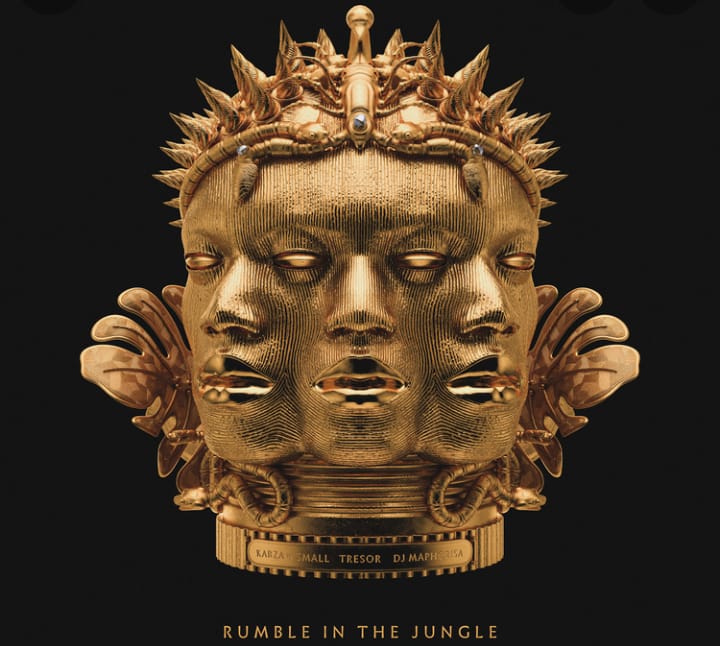
Release date: April 9th
With just a minute short of 100, DJ Maphorisa, Kabza De Small, and Tresor’s collaborative album is a potpourri of various tropes centered on the Amapiano genre.
The duo of DJ Maphorisa and Kabza De Small have been frequent collaborators, and the latter, often referred to as the king of Amapiano has epitomised this with his frequent collaborative projects, the biggest being the Rumble in the Jungle, which shares a title with the iconic bout between Muhammed Ali and George Foreman. The project begins with Tresor’s clear delivery of “Stimela,” in which the cries of “I’m coming home, my baby” reverberates, accompanied by an unmistakable stellar Amapiano production.
In “Funu,” “I’m lost in you babe, there’s nothing I wouldn’t do to make it right” is the recurring bridge as Tresor, once again, finishes up the tune with Swahili-sufused interludes. The serenading continues with “Folasade,” a love/sensual track, while “Starry Night” makes an almost chopped sequence of the vocals represented.
One could posit that this piece of art represents a laudable collaborative effort, showcasing the evolution of the Amapiano movement.
1
Little Simz (Sometimes I Might Be Introvert)
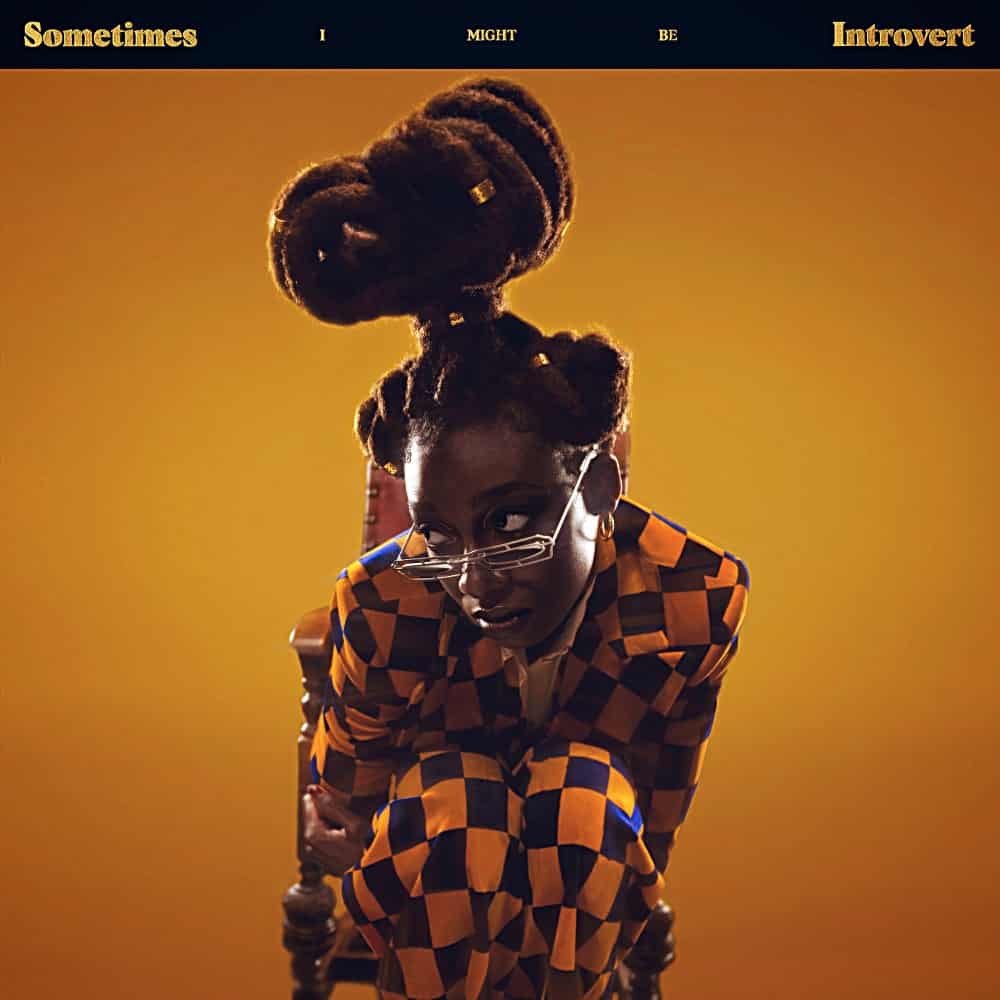
Release date: September 3rd
On the strength of her 2019 Mercury Prize-nominated Grey Area and 2020 EP Drop 6, Little Simz’ (Simbiatu Abisola Abiola Ajikawo) Sometimes I Might Be Introvert was a defining project which revealed the core of a young black British-based creative.
The 27-year-old Islington-born rapper, singer and actress strides defiantly on this 19-track LP, unmasking a wide range of topics from feminism, introversion, family, revolt, to African culture through the lens of a black woman resident in the UK.
Despite its strong hip hop proclivities, this LP does not shy away from bold multi-genre influences, as Afrobeat(s), Jazz, R&B and orchestra elements/samples are interspersed throughout the body of work. Her lyrical depth notwithstanding, it is this proficient musicality that captivates the listener so much that they are hooked on the project regardless of their sonic preferences.
The rapper is not afraid to tackle sensitive topics, as “I love you, I hate you” explores a bold discourse about an estranged father. “Miss Understood” reveals another side to Little Simz as her attempts at balancing personal life and family are brought to bare. “Point and Kill” featuring Obongjayar is an ambitious track which explores the lyricist’s Nigerian roots laced in Obongjayar’s strong jazzy overlay. The visuals do not fall short in this bold identity statement as it is set in vintage Nigeria.
“Fear no Man” follows through with some of the strongest, pure Afrobeat, hip hop underlays. It is only fitting that a song about courage and braggadocio comes with that undiluted Afrobeat overtone.
On the subject of women, this LP does not hold back in their adulation, as seen in the soulful rendition of “Woman” with Cleo Sol, where the rapper alludes to African attributes of women, taking particular cognizance of diverseness even in the continental context.
The LP weaves through both thematic and sonic complexities, yet manages to deliver a distinct sound that establishes the artiste as authentic, one who has come into her own, and is not in the shadow of her models. A fitting way to stamp her identity on the world.




